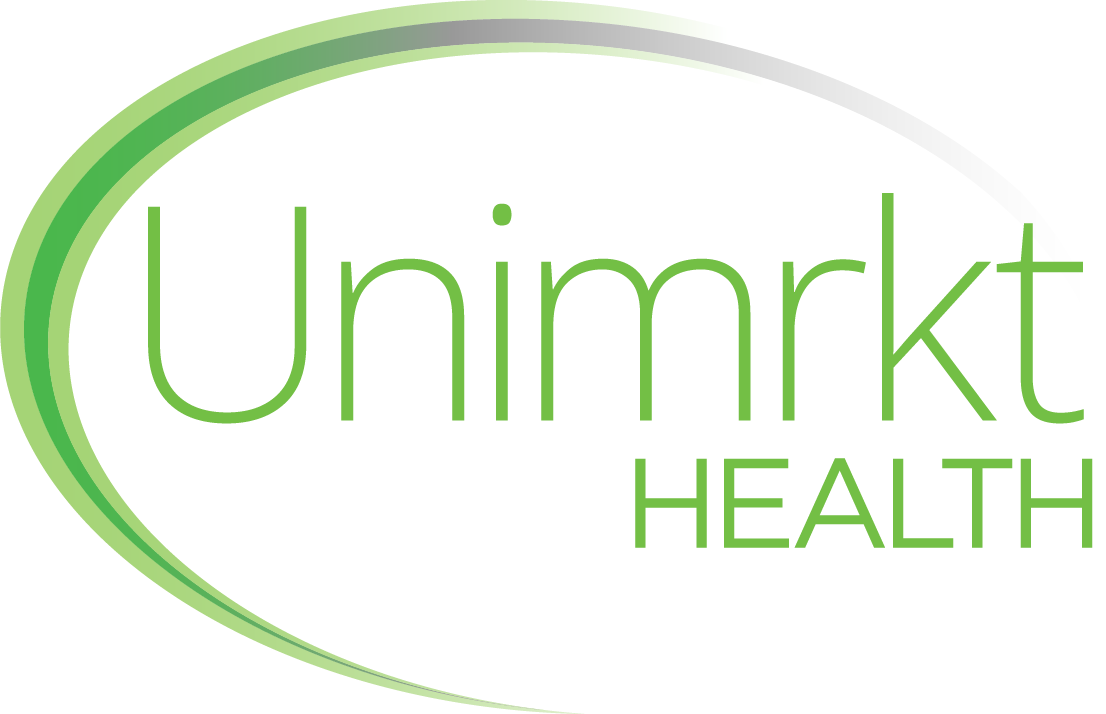Precision Insights for Precision Medicine: Market Research to Drive Personalized Healthcare
- Unimrkt Healthcare » Blog » Precision Insights for Precision Medicine: Market Research to Drive Personalized Healthcare
When groundbreaking therapies meet the complexities of real‑world healthcare, even the most promising precision‑medicine innovations can struggle to find their footing. Without clear insights into patient needs, clinician workflows and payer expectations, you risk delays, misaligned launches and missed opportunities. In this guide we show how targeted market research in healthcare delivers the precise data you need – from genetic‑segment sizing to payer‑policy analysis – to align your R&D, clinical and commercial teams. Whether you are a biotech innovator, device maker or health system leader, you’ll discover how rigorous healthcare industry research and patient‑centred studies can turn uncertainty into confidence and drive your personalized‑care strategy forward.
1. Introduction: The Power of Precision Data
Precision medicine moves beyond one-size-fits-all approaches by integrating genetic, environmental and lifestyle factors to match the right therapy with the right patient. Clinical breakthroughs alone don’t guarantee success; without detailed healthcare industry research, organizations risk misjudging patient populations, underestimating clinician requirements or missing payer hurdles. By investing in professional healthcare brand research and patient market research, stakeholders can accelerate development timelines, test efficacy and benefit profiles, optimize launch plans and enhance return on R&D.
2. The Evolution of Precision Medicine
From Broad-Spectrum to Bespoke Therapies
Historically, medications were tested and approved based on average effects in varied patient groups. Advances in data analytics have driven a shift toward segmentation by genetic profile, biomarker status and clinical subtypes. The role of healthcare industry market research is crucial here, as it helps identify which segments require targeted therapies.
Key Milestones and Technologies
Technological advancements such as Next-Generation Sequencing (NGS) and Companion Diagnostics have enabled the development of highly specific treatments.
- Next-Generation Sequencing (NGS): Rapid, cost-effective genomic profiling.
- Companion Diagnostics: Co-developed tests (e.g., HER2 assays) that determine patient eligibility for targeted drugs.
- Cell and Gene Therapies: Treatments like CAR-T that reprogram a patient’s own cells.
Market research in healthcare is essential in identifying market readiness for these technologies and understanding adoption rates.
Examples of Precision-Medicine Products and Services
Today, the market opportunity for healthcare firms interested in precision medicine is endless, including avenues such as:
- Genomic Tests: Gene panels that predict drug response or disease progression.
- Targeted Therapeutics: Small-molecule inhibitors and monoclonal antibodies aimed at specific pathways.
- AI-Driven Analytics: Platforms that analyse EHRs and claims to forecast treatment outcomes.
- Wearable Digital Biomarkers: Devices that continuously monitor metrics such as glucose or heart rate.
- Precision Public-Health Initiatives: Screening programmes that use demographic and genomic data to identify at-risk populations.
Expert healthcare market research services are needed to assess market potential and ensure that these innovations reach the right patients effectively.
3. Understanding Your Stakeholders
Successful precision medicine launches require alignment across multiple audiences. Expert healthcare market research services uncover the needs and priorities of each group:
- Patient Segmentation and Personas: Quantitative surveys and real-world evidence (RWE) identify high-value cohorts by genetic markers, demographics and behavioral traits. Personas detail patient journeys, decision drivers and barriers to care.
- Clinician and Payer Needs: In-depth interviews and site audits reveal prescribing workflows, budget constraints and reimbursement criteria. Payer research assesses coverage policies and co-pay structures, ensuring viable pricing strategies.
- Pharma and Biotech Priorities: Competitive-pipeline mapping highlights unmet needs, licensing opportunities and partnership targets, guiding R&D investment and launch sequencing.
4. Data Sources for Market Research in Healthcare
Effective market research in healthcare is critical for collecting the right data that not only informs business strategies but also drives overall success. Understanding the complex landscape of patient needs, clinician behavior, and market dynamics requires access to diverse and reliable data sources. Such market data allows healthcare organizations to make informed decisions that shape their products, services, and growth strategies.
- Real-World Evidence (RWE) and EHR Analytics: De-identified patient records quantify treatment patterns, adherence rates and outcome differentials.
- Genomic and Biomarker Databases: Repositories like TCGA supply mutation prevalence and co-occurrence data, informing testing and lab-capacity forecasts.
- Patient-Reported Outcomes and Digital Therapeutics Data: Mobile apps and online surveys capture quality-of-life measures and therapy satisfaction, enriching clinical and commercial planning.
- Secondary Sources: Scientific literature reviews, clinical-trial registries, patent filings and financial reports round out the competitive picture.
5. Market Research Methodologies
The right market research methodology can significantly impact the success of precision medicine product development, branding, market launch, and lifecycle. From quantitative surveys to qualitative interviews, healthcare market research services provide a variety of approaches for gathering accurate data.
- Quantitative Surveys: Large-scale questionnaires measure clinician prescribing intent, patient treatment preferences and payer coverage adoption. Stratified sampling and skip logic ensure statistical validity.
- Qualitative Interviews (IDIs): One-on-one sessions with key opinion leaders (KOLs), payers and patient advocates provide rich data on the motivations, workflows and unmet needs.
- Conjoint Analysis and Preference Modelling: Discrete-choice experiments quantify the relative importance of attributes, such as real-world efficacy and benefit profile, that guide product-feature prioritization.
- Competitive Landscape and Pipeline Mapping: Systematic tracking of approvals, trial progress, patent expirations and licensing deals benchmarks your assets against incumbents and emerging entrants.
6. Overcoming Challenges with Healthcare Market Research Services
Precision-medicine markets pose unique hurdles:
- Data Integration and Interoperability: Harmonising EHRs, claims, genomics and wearables demands robust ETL pipelines, standard ontologies (SNOMED, LOINC) and secure APIs.
- Small Populations and Statistical Rigor: Rare-disease and biomarker-defined cohorts challenge sample-size requirements. Advanced statistical methods such as bootstrapping and Bayesian inference help maintain validity.
- Stakeholder Alignment: Physicians, payers, patients and investors often have divergent priorities. Through stakeholder research, businesses can identify whether strategies such as facilitated workshops, interactive dashboards and transparent reporting is needed to create consensus around market-entry assumptions.
- Regulatory and Ethical Compliance: Strict adherence to HIPAA, GDPR and regional privacy laws through de-identification, consent management and audited data-handling protocols safeguards patient trust.
The precision medicine market presents unique challenges that require specialized knowledge and expertise. They can streamline the data collection process, ensuring you have accurate, relevant market information to make informed decisions and drive success in the competitive precision medicine market.
7. Market Data That Inform Actionable Strategies
Accurate and relevant market data helps companies shape their strategies by providing a clear understanding of market dynamics, customer needs, and competitive positioning. By leveraging precise market data, businesses can make informed decisions that lead to:
- Market-Sizing and Forecasting: Collect accurate market data that helps define the total addressable market (TAM) and serviceable obtainable market (SOM) through epidemiological models and adoption-curve analysis. This data will be vital for companies to estimate potential market size and growth opportunities.
- Pricing, Reimbursement and Market-Access Modelling: Gather data on health-economic factors, including direct medical costs, quality-adjusted life years (QALYs), and payer coverage scenarios. This foundational data helps inform pricing strategies and reimbursement models, ensuring a clear path for market access.
- Go-to-Market Strategy: Collect data on regulatory submissions, real-world-evidence publications, or benefit of clinician-education programmes. This data can guide phased launch plans, identifying the right centres of excellence, early-adopter payers and expert networks to drive faster market uptake.
- Brand Messaging: Collect targeted healthcare brand research data to assess value propositions and marketing materials with patients, clinicians, and payers. This data helps refine brand messaging and optimize marketing strategies through techniques like A/B testing and focus groups.
Partner with Unimrkt Healthcare
Unimrkt Healthcare offers comprehensive, end-to-end healthcare industry market research and patient market research services designed to meet your specific needs. We begin with a tailored study design, customizing methodologies, whether surveys, in-depth interviews or on-site audits, to your therapeutic area, geography and stakeholder mix. Our integrated data platform then securely ingests, cleans and visualizes information from multiple sources in real time, providing clear, relevant, and organized market data. Throughout the project lifecycle, we also provide full compliance support, managing consent, privacy safeguards and audit-ready documentation to ensure your research adheres to all regulatory standards. To discover how Unimrkt’s Healthcare’s healthcare market research services can accelerate your precision-medicine efforts, call +91-124-424-5210 or +91-9870-377-557, email sales@unimrkthealth.com, or complete our online contact form. Our experts will connect with you promptly.
Frequently Asked Questions (FAQs)
Q1: What are healthcare market research services?
Healthcare market research services involve systematic data collection and analysis, including quantitative and qualitative, to understand patient populations, clinician behaviors, payer policies and competitive landscapes in the healthcare industry.
Q2: How does healthcare brand research differ from patient market research?
Healthcare brand research focuses on perceptions and positioning of products or companies among stakeholders, while patient market research zeroes in on patient-centred factors such as treatment journeys, preferences and adherence drivers.
Q3: Why is healthcare industry research critical for precision medicine?
Healthcare industry research quantifies market size, maps competitor pipelines and uncovers adoption barriers, ensuring precision-medicine innovations address real-world needs and achieve commercial viability.
Q4: What methodologies are used in market research in healthcare?
Common methodologies include Quantitative Surveys, Qualitative In-Depth Interviews, Conjoint Analysis, Competitive-Landscape Mapping and Clinical Site Audits, each chosen based on research objectives.
Q5: Can small-sample studies be valid in precision-medicine markets?
Yes. Specialist providers employ advanced statistical techniques to maintain analytical rigor when working with rare or niche patient cohorts.
Q6: How do I choose the right healthcare market research partner?
Look for a provider with deep therapeutic-area expertise, robust data-management platforms, proven compliance with HIPAA/GDPR and a track record of data collection.
Recent Posts
- 10 Medical Online Survey Mistakes You Must Leave Behind in 2025
- How Qualitative Healthcare Research Can Accelerate Ethical AI Adoption
- Trust as a Growth Strategy: What Healthcare Leaders Can Learn From Business Market Analysis
- Mapping the Healthcare Value Chain: A Market Research Perspective
- Decoding Emotional Triggers in Treatment Choices: A Qualitative Approach
Archives
Quick Enquiry
Customer Service, We Make it Better
Related Posts:
Let's Connect
Please, fill in the form to get in touch!



